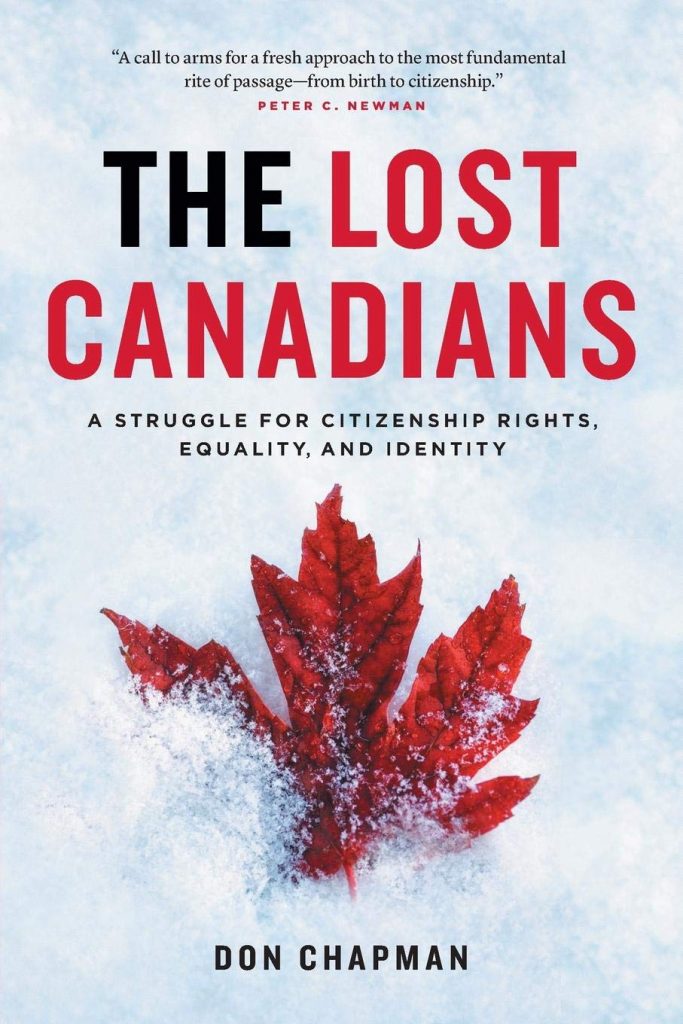LEARN
Add Your Heading Text Here
By Gary Symons
The idea that someone could be arbitrarily stripped of their citizenship seems bizarre to most people, whether they come from Canada or abroad. In most democratic countries citizenship is seen as a right, an inalienable part of one’s status in the country of their birth.
But in Canada, a bizarre and labyrinthine web of conflicting and often discriminatory laws caused thousands of people to be stripped of their citizenship from 1947 until 2009. In fact, demographic data uncovered by The Lost Canadians and by various journalists later revealed that up to one million people in Canada were at risk of losing their citizenship.
That changed when The Lost Canadians successfully lobbied for Bill C-37, which not only eradicated most of those unfair laws, but also returned citizenship to the vast majority of people who had lost their status. In a strange twist of history, many of the people who technically were not Canadians had their citizenship returned to them without ever knowing it had been lost!
Prior to Bill C-37 being enacted in 2009, there were 12 primary ways you could lose your citizenship, as follows:
1) As a minor child ones father took out citizenship in another country.
2) You were a foreign-born Canadian, and on your 24th birthday you weren’t domiciled in Canada .
3) You were a War Bride who never became naturalized.
4) You were a War-Bride child who never was naturalized.
5) In certain circumstances, you were a second-generation born abroad Canadian and you didn’t reaffirm your citizenship by your 28th birthday.
6) You were a border-baby, meaning you were born in the U.S. (mainly because the nearest hospital was in the States rather than Canada ), and you were never properly registered. People from Quebec were particularly affected by this section of the law, as many were born in hospitals just across the border.
7) In certain circumstances, your connection to Canada came through a women rather than a man. This mainly affected foreign born, born in-wedlock children to Canadian mothers and foreign fathers. In 1997 the Canadian Supreme Court ruled CIC was guilty of gender discrimination, thus granting citizenship to this group on application. However, in 2004 CIC decided to ignore the Supreme Court’s ruling, and Canada went back to blatantly discriminating against women.
8) You were born out of wedlock.
9) You were born to a Canadian serviceman outside of Canada, commonly referred to as Military Brats.
10) You are a woman who married a non-Canadian prior to 1947.
11) You are a child of a woman who married a non-Canadian prior to 1947. (It doesn’t matter that you’ve spent your whole life in Canada or were born in Canada!)
12) You took out citizenship in another country prior to 1977.
One of the major problems with Canadian citizenship law was that very few people were made aware that any of these things could cause the loss of citizenship, and quite often people would lose their status through no fault of their own.
For example, in 2008, CBC News ran a story on Mike Leetch, a Toronto man who was born in Canada to Canadian parents. He grew up in Canada and later worked in marketing for the Toronto Blue Jays baseball team. Mike was as Canadian as it gets, but it turned out his father, who left the family when Leetch was a baby, had moved to the United States. Leetch had not seen his father in many years and didn’t really know him, but when his father took out US citizenship, Leetch was informed that he was no longer a Canadian citizen, and that he would have to move to the United States!
Fortunately, media coverage of Leetch’s story caused the then-Minister of Citizenship and Immigration Canada (CIC) to issue a Grant of Citizenship under Section 5.4 of the Act. Others weren’t so lucky, and many went to their graves unable to return to their own country.
THE HISTORY
History of Pre-1947 Citizenship

Don Chapman
The History of Canadian War Brides and Babies

Don Chapman
Border Babies and Born Abroad Pre- and Post-1977

Don Chapman
HOT OFF THE PRESS
The Lost Canadians: A Struggle for Citizenship Rights, Equality and Identity
When Don Chapman was six years old, he was stripped of his Canadian citizenship, thanks to an arcane provision of the Canadian Citizenship Act. Years later, he was stunned to discover the fact, and thus began his David-and-Goliath battle to change Canada’s archaic citizenship laws.

